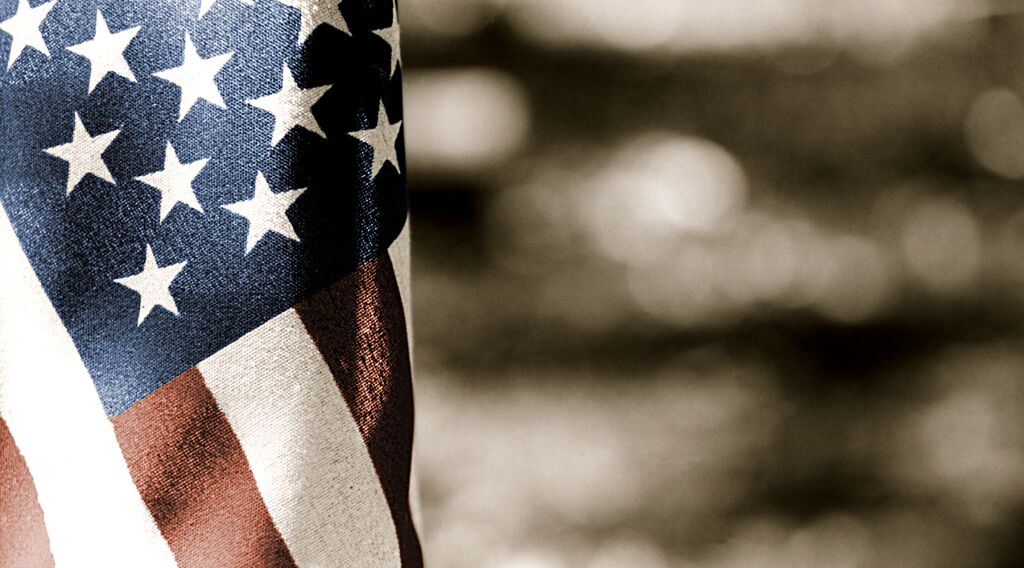
One Last Word for 2016
Many online dictionaries have taken up the tradition of ending each calendar year by designating a word that they feel encapsulates the most significant trends, themes and sentiments of the previous 12 months: the word of the year (woty).
A logophile may say the tradition strives to capture the zeitgeist.
A quick survey of some of the woty selections for 2016 reveals some sobering details about the spirit of the year and offers some indications of what may be in store for 2017.
Dictionary.com: The Year Fear of ‘the Other’ Flourished
After noting several spikes in searches for the term, Dictionary.com announced that its woty choice for 2016 was xenophobia. It is defined as “fear or hatred of foreigners, people from different cultures, or strangers” or “fear or dislike of the customs, dress, etc. of people who are culturally different from oneself.”
You could call it “fear of the other.”
Considering sentiments that emerged and intensified among Europeans after refugees from the Middle East and North Africa attacked their native populations, it is easy to see why xenophobia was a logical choice. The “phobia” part of the word implies that the fear is irrational, but, as such attacks continued throughout the year, more and more Europeans began believing it would be irrational not to take the threat seriously. More and more saw a need to stand up to the violence. As a result, right-leaning leaders and parties across the Continent gained power during 2016 and became increasingly primed to take action against “the other.”
Those committing such assaults and attacks are also driven in large part by hatred for “the other.”
“Dictionary.com is right to make xenophobia the word of the year,” said Robert Reich, professor of public policy at University of California, Berkeley. “But it is also one of the biggest threats we face.”
Oxford: The Year Emotion Trumped Truth
For its 2016 woty, the vaunted Oxford Dictionaries selected post-truth, an adjective defined as “relating to or denoting circumstances in which objective facts are less influential in shaping public opinion than appeals to emotion and personal belief.”
Oxford says it chose post-truth because 2016 saw a significant spike in the term’s usage, “in the context of the EU referendum in the United Kingdom and the presidential election in the United States.” The inference is that the world was safe, but unwarranted emotion and fear prevented voters from recognizing that safety. And hysteria-driven voters cast their ballots in ways that made the world less safe.
What Oxford doesn’t mention was a phenomenon occurring across the political aisle from most Brexit and Trump voters, which provides additional justification for post-truth as a solid 2016 woty choice: The year saw many progressives become unprecedentedly willing to sacrifice actual truth in service of “the greater truth”—their worldview that transcends the reach of facts. If a fact is viewed as a bothersome technicality that hinders making progress toward “the greater truth,” the fact is likely to be sidestepped, ignored or revised in Orwellian fashion.
Whether right- or left-leaning, when people become influenced more by emotional appeals than by facts it often means they are primed to embrace extreme ideologies and to act in ways that deepen political, racial, religious and national divides.
Merriam-Webster: ‘Was It All a Bad Dream?’
For their woty, Merriam-Webster lexicographers went with surreal, an adjective they define as “marked by the intense irrational reality of a dream.”
The French preposition sur means “above,” bestowing the relatively young word with a sense of feeling too real to be real. Merriam-Webster selected surreal after noticing major spikes in users looking it up after the terrorist attacks in Brussels, Nice and Orlando; the coup attempt in Turkey; the Brexit vote; and, the largest spike of all, the U.S. election.
“When we don’t believe or don’t want to believe what is real,” the editors noted, “we need a word for what seems ‘above’ or ‘beyond’ reality. Surreal is such a word.”
American Dialect Society: Up in Smoke
The American Dialect Society, though lesser known than the above outfits, is the organization that started the woty tradition almost 30 years ago.
Its panel’s choice for 2016 was darker than the above selections, but with a comical flare. And instead of choosing one word, it went with a multiword “vocabulary item.” Its pick was dumpster fire, a noun defined as “an exceedingly disastrous or chaotic situation.”
Chairman of the American Dialect Society’s New Words Committee Ben Zimmer explained: “In pessimistic times, dumpster fire served as a darkly humorous summation of how many viewed the year’s events. … As 2016 unfolded, many people latched on to dumpster fire as a colorful, evocative expression to verbalize their feelings that the year was shaping up to be a catastrophic one.”
TheTrumpet.com
The Trumpet is not a dictionary publisher, nor is our Editorial staff comprised of lexicographers and semanticists. Nevertheless, after carefully watching 12 months of events unfold around the world, we offer one more Word of the Year for the 2016 list. It’s a word that you may have spotted a few times in the text above: primed.
After 75 years of relative peace and stability, 2016 saw mankind enter more deeply into a post-truth age in which xenophobia and other factors made the world seem surreal.
It is hyperbolic to say the dumpster fire is already raging. But during 2016, the world did become primed for such a conflagration to break out. Americans are primed for more infighting, and, under President Trump, the nation is turning more inward in a way that may abruptly end the Pax Americana that has long stabilized the global order. The nations of the world are primed for all manner of divides to deepen, for tensions to escalate, and for conflict to erupt.
To understand what to expect regarding a world that is primed for conflict, read Trumpet editor in chief Gerald Flurry’s booklet Great Again.
